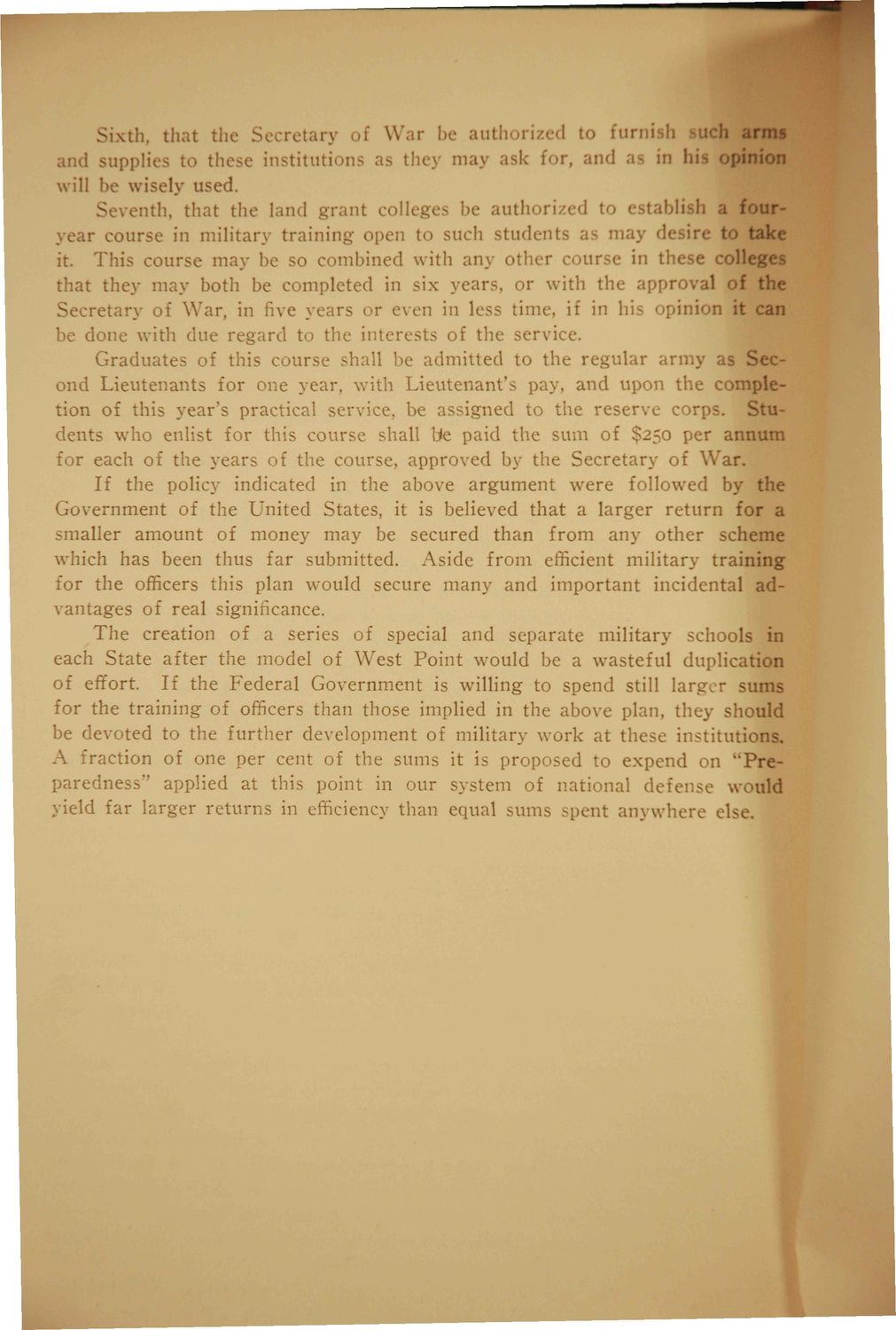| |
| |
Caption: Booklet - Military Training in our Land Grant Colleges (1916)
This is a reduced-resolution page image for fast online browsing.

EXTRACTED TEXT FROM PAGE:
Sixth, that the Secretary of War be authorized to furnish uch arms d supplies to those institutions as they may ask for, and as in his opinion will he wisely used. Seventh, that tin land grant colleges he authorized to establi a i ury< r course in military training open to such students m; d< to take it. This course may he so combined with any other course in th( colleges that they may both be completed in six years, or with the appn al of the Secretary of War, in five years or even in less time, if in his Opinion it can be done with due regard to the interests of the service. Graduates of this course shall he admitted to the regular army as Second Lieutenants for one year, with Lieutenant's pay, and upon the completion of this year's practical service, be assigned to the reserve corps. Students who enlist for this course shall be paid the sum of 250 per annum for each of the years of the course, approved by the Secretary of War. If the policy indicated in the above argument were followed by the Government of the United States, it is believed that a larger return for a mailer amount of money may be secured than from any other scheme which has been thus far submitted. Aside from efficient military training for the officers this plan would secure many and important incidental advantages of real significance. The creation of a series of special and separate military schools in each State after the model of West Point would be a wasteful duplication of effort. If the Federal Government is willing to spend still larger sums for the training of officers than those implied in the above plan, they should be devoted to the further development of military work at these institutions. V fraction of one per cent of the sums it is proposed to expend on Preparedne " applied at this point in our system of national defense would yield far larger returns in efficiency than equal sums spent anywhere else.
| |